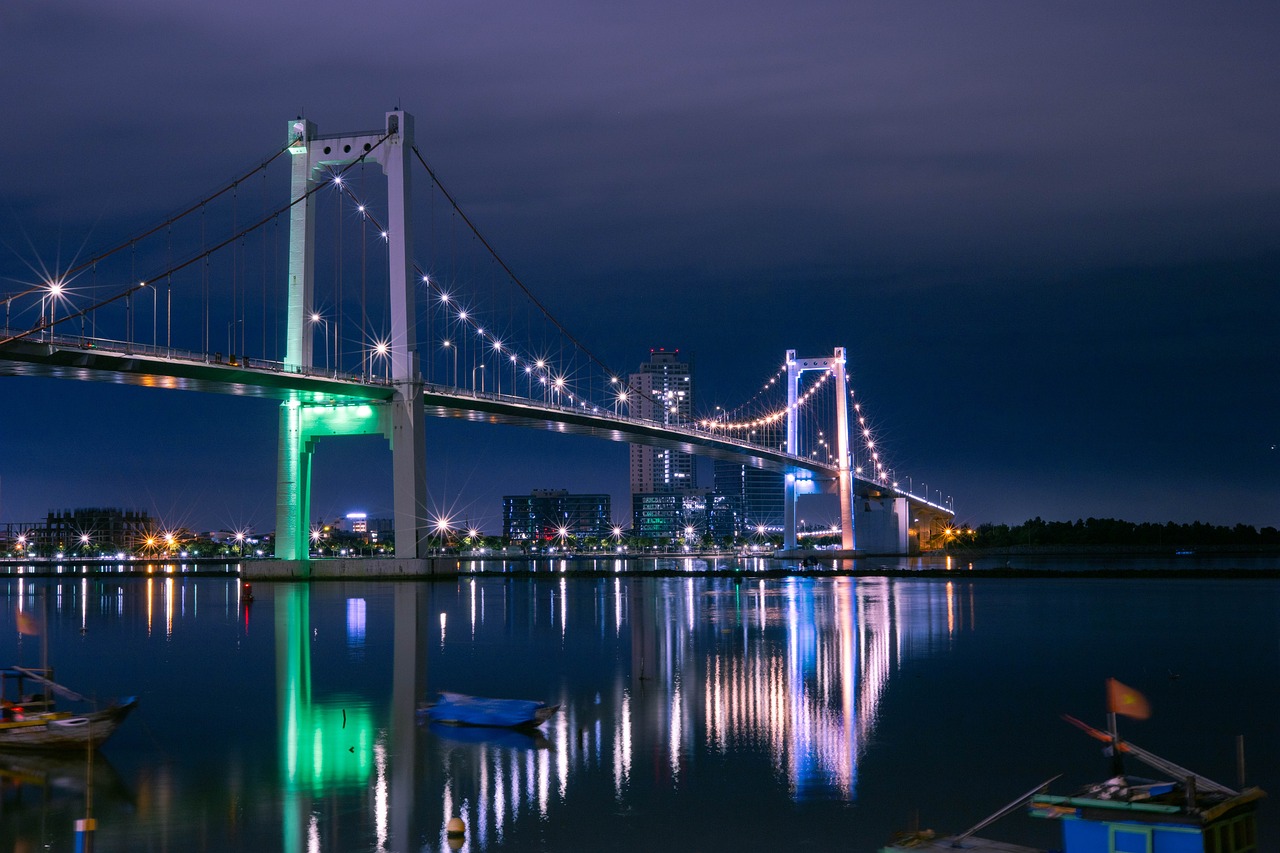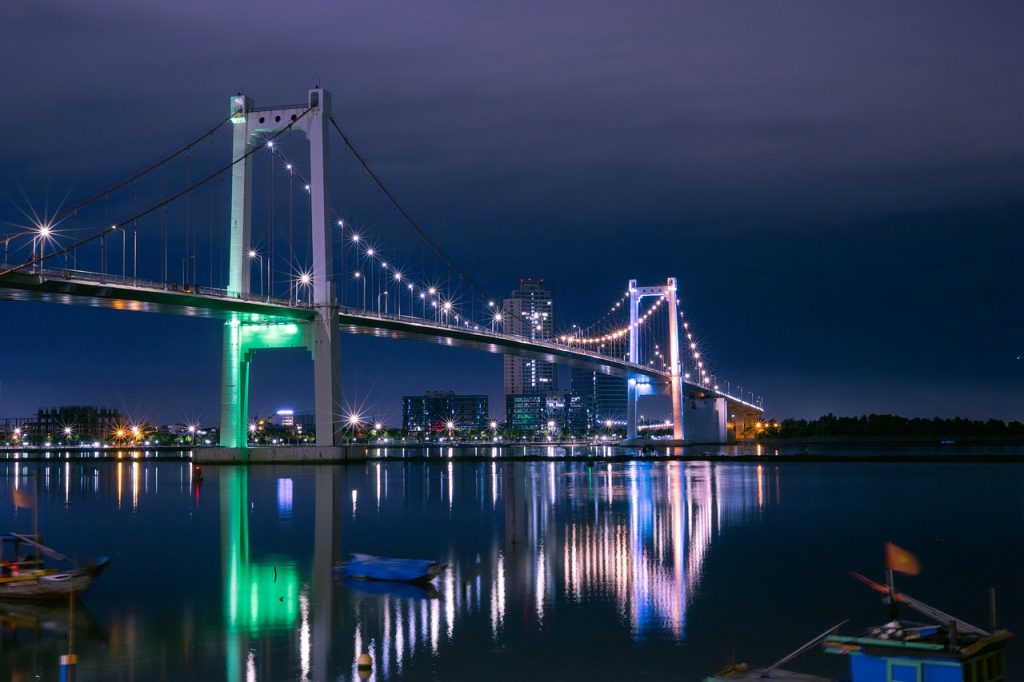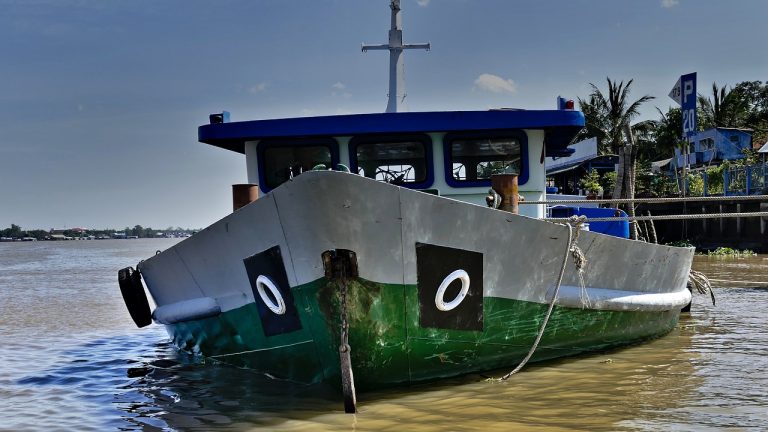Da Nang Vietnam Video
Eco-tourism in Da Nang Vietnam: Sustainable and Green Travel Options
Da Nang, located in central Vietnam, is a city known for its stunning natural beauty and rich cultural heritage. As sustainable travel becomes increasingly important, eco-tourism in Da Nang offers travelers a chance to explore the region’s attractions while minimizing their impact on the environment. From eco-friendly accommodations to conservation projects and outdoor activities, Da Nang provides numerous sustainable and green travel options for eco-conscious tourists.
Da Nang Vietnam Image 1

Section 1: Eco-friendly Accommodations
When planning a sustainable trip to Da Nang, choosing eco-friendly accommodations is a crucial aspect. Fortunately, the city offers a range of eco-conscious hotels and resorts that prioritize environmental conservation. These establishments implement various practices such as energy-efficient lighting, water conservation measures, waste management systems, and the use of sustainable materials. By staying at these eco-friendly accommodations, travelers can reduce their carbon footprint while enjoying a comfortable and responsible stay.
- Sunrise Resort: This beachfront resort is committed to sustainability, with initiatives like solar power usage, water-saving measures, and recycling programs. Guests can enjoy a luxurious stay while knowing that their environmental impact is minimized.
- Green Valley Hotel: Located in a peaceful setting surrounded by nature, this eco-friendly hotel focuses on energy conservation and waste reduction. It offers comfortable rooms and amenities while maintaining a commitment to sustainable practices.
- Eco Homestay: For a more immersive experience, travelers can opt for eco homestays, which provide an opportunity to stay with local families who promote sustainable living. These homestays often involve activities like organic farming, waste reduction, and cultural exchanges.
Keywords: eco-friendly accommodations, sustainability, energy-efficient lighting, water conservation, waste management, sustainable materials
Section 2: Conservation Projects
Da Nang is home to several conservation projects aimed at protecting the region’s unique ecosystems and wildlife. These projects offer visitors a chance to learn about conservation efforts while actively participating in activities that contribute to the preservation of the environment.
- Son Tra Nature Reserve: Located on the Son Tra Peninsula, this protected area is known for its rich biodiversity and stunning landscapes. Visitors can join guided tours to explore the reserve’s trails, spot endangered species such as the red-shanked douc langur, and learn about ongoing conservation efforts.
- Marble Mountains: These limestone hills are not only a popular tourist attraction but also home to diverse plant and animal species. Conservation projects in the area focus on preserving the unique ecosystem and promoting sustainable tourism practices.
- My Khe Beach Turtle Conservation: Da Nang’s pristine beaches are nesting grounds for endangered sea turtles. Conservation organizations work tirelessly to protect these nesting sites, and visitors can participate in turtle release programs and learn about the importance of marine conservation.
Keywords: conservation projects, Son Tra Nature Reserve, biodiversity, red-shanked douc langur, Marble Mountains, sustainable tourism, My Khe Beach, sea turtles
Da Nang Vietnam Image 2

Section 3: Outdoor Activities
Da Nang offers a plethora of outdoor activities that allow travelers to immerse themselves in nature while minimizing their ecological impact. Whether it’s exploring national parks, embarking on eco-friendly tours, or engaging in adventure sports, there’s something for everyone seeking sustainable outdoor experiences.
- Ba Na Hills: This scenic mountain resort offers a range of eco-tours that allow visitors to discover the region’s natural beauty while learning about sustainable practices. Activities include hiking, bird watching, and exploring the lush landscapes.
- Hai Van Pass: Known as one of the most scenic coastal roads in the world, the Hai Van Pass provides breathtaking views of the surrounding mountains and coastline. Travelers can rent bicycles or join eco-friendly motorbike tours to experience this iconic route responsibly.
- Lang Co Bay: With its crystal-clear waters and pristine beaches, Lang Co Bay is a paradise for eco-conscious travelers. Visitors can engage in water sports like kayaking and snorkeling while being mindful of the marine ecosystem and supporting responsible tour operators.
Keywords: outdoor activities, Ba Na Hills, eco-tours, sustainable practices, Hai Van Pass, coastal road, Lang Co Bay, water sports
Section 4: Local Cuisine and Sustainable Dining
Exploring the local cuisine is an essential part of any trip, and Da Nang offers a vibrant food scene that incorporates sustainable dining practices. From farm-to-table restaurants to street food vendors using locally sourced ingredients, travelers can indulge in delicious meals while supporting sustainable food systems.
- Vegetarian Restaurants: Da Nang is known for its vegetarian-friendly options, with numerous restaurants specializing in plant-based dishes made from locally grown produce. These establishments promote sustainable agriculture and offer a wide variety of flavorful vegetarian and vegan options.
- Farm-to-Table Experiences: Some restaurants in Da Nang collaborate directly with local farmers, ensuring fresh and organic ingredients are used in their dishes. Travelers can participate in farm-to-table experiences, where they visit local farms, learn about sustainable farming practices, and enjoy meals prepared with the harvested produce.
- Local Markets: Exploring local markets like Han Market and Con Market not only offers a glimpse into daily life but also allows visitors to support local vendors and purchase fresh, locally sourced ingredients for a sustainable cooking experience.
Keywords: local cuisine, sustainable dining, farm-to-table, vegetarian restaurants, plant-based dishes, organic ingredients, local markets
Da Nang Vietnam Image 3

Section 5: Sustainable Transportation
To further reduce their environmental impact, eco-conscious travelers in Da Nang can opt for sustainable transportation options. The city provides various choices that prioritize energy efficiency and minimize carbon emissions.
- Bicycle Rentals: Renting bicycles is a popular and eco-friendly way to explore Da Nang and its surroundings. Many hotels and rental shops offer bicycles for visitors to use, allowing them to discover the city at their own pace while reducing their carbon footprint.
- Electric Scooters: Electric scooters are gaining popularity as a sustainable mode of transportation in Da Nang. These scooters produce zero emissions and provide a convenient and efficient way to navigate the city while minimizing air pollution.
- Public Transportation: Da Nang has an extensive public transportation network, including buses and trains, which are eco-friendly alternatives to private vehicles. Travelers can utilize these options to explore the city and its neighboring areas responsibly.
Keywords: sustainable transportation, bicycle rentals, energy efficiency, carbon emissions, electric scooters, public transportation
Section 6: Environmental Education and Awareness
Promoting environmental education and raising awareness about sustainable practices is crucial for the long-term preservation of Da Nang’s natural resources. The city offers opportunities for visitors to engage in educational activities and initiatives that contribute to the conservation and protection of the environment.
- Environmental Workshops: Various organizations in Da Nang conduct workshops and seminars that focus on environmental issues, sustainable living, and conservation efforts. Travelers can participate in these educational programs to gain a deeper understanding of the region’s ecosystems and learn how to make a positive impact.
- Community Initiatives: Local communities actively participate in environmental conservation and sustainable development projects. Visitors can engage with these initiatives, such as beach clean-ups and tree planting campaigns, to contribute to the preservation of Da Nang’s natural beauty.
- Ecotourism Centers: Da Nang is home to ecotourism centers that provide information, resources, and guided tours focused on sustainability. These centers offer insights into the region’s biodiversity, cultural heritage, and conservation efforts, allowing visitors to become more environmentally conscious travelers.
Keywords: environmental education, sustainable practices, environmental workshops, community initiatives, ecotourism centers, conservation efforts
Section 7: Supporting Local Artisans and Crafts
Supporting local artisans and crafts is an excellent way to contribute to the sustainable development of Da Nang’s communities while preserving traditional craftsmanship and cultural heritage.
- Hoi An Ancient Town: Just a short distance from Da Nang, Hoi An is renowned for its traditional crafts and skilled artisans. Visitors can explore the town’s vibrant streets, visit local workshops, and purchase handmade products directly from the artisans, thus supporting their livelihoods and sustaining the local economy.
- Non Nuoc Stone Carving Village: Located near Da Nang, this village is famous for its intricate stone carvings. Travelers can witness the craftsmanship, interact with artisans, and purchase unique stone sculptures as souvenirs, fostering the continuation of this traditional art form.
- Traditional Markets: Da Nang’s traditional markets, such as Han Market and Con Market, offer a wide range of locally made handicrafts, textiles, and souvenirs. By purchasing from these markets, visitors contribute to the preservation of traditional craftsmanship and support local artisans.
Keywords: local artisans, traditional crafts, Hoi An Ancient Town, skilled artisans, Non Nuoc Stone Carving Village, stone sculptures, traditional markets
Section 8: Waste Reduction and Recycling
Efforts to reduce waste and promote recycling play a vital role in sustainable tourism. Da Nang has implemented several initiatives to address these issues and encourage responsible waste management practices.
- Beach Clean-ups: Regular beach clean-up programs are organized in Da Nang to maintain the cleanliness of the coastline and prevent marine pollution. Travelers can volunteer to participate in these initiatives and contribute to the preservation of the city’s pristine beaches.
- Recycling Centers: Da Nang has established recycling centers where residents and visitors can dispose of recyclable materials. Supporting these centers by properly segregating waste and utilizing recycling facilities helps minimize the environmental impact.
- Plastic-Free Initiatives: To combat plastic pollution, many businesses in Da Nang have adopted plastic-free practices. Travelers can support these initiatives by using reusable water bottles, carrying reusable bags, and opting for eco-friendly products.
Keywords: waste reduction, recycling, beach clean-ups, marine pollution, recycling centers, plastic-free initiatives
Section 9: Preserving Cultural Heritage
Da Nang is rich in cultural heritage, and sustainable tourism plays a crucial role in preserving and promoting these valuable assets.
- Museum of Cham Sculpture: This museum showcases the unique Cham civilization through its impressive collection of sculptures and artifacts. By visiting and supporting the museum, travelers contribute to the preservation of Cham cultural heritage.
- Hoi An Ancient Town: As a UNESCO World Heritage site, Hoi An Ancient Town is a well-preserved example of a Southeast Asian trading port from the 15th to the 19th century. Visitors can explore the town’s historic buildings, temples, and traditional houses while respecting the cultural significance and heritage of the area.
- Traditional Festivals: Da Nang hosts various traditional festivals throughout the year, providing opportunities for tourists to experience local customs and traditions. By participating respectfully and learning about these cultural events, travelers contribute to the preservation of Da Nang’s cultural heritage.
Keywords: cultural heritage, Museum of Cham Sculpture, Cham civilization, Hoi An Ancient Town, UNESCO World Heritage, traditional festivals
Section 10: Conclusion
Da Nang, Vietnam, offers a plethora of sustainable and green travel options for eco-conscious tourists. From eco-friendly accommodations and conservation projects to outdoor activities and supporting local artisans, travelers can explore the region’s natural and cultural wonders while minimizing their environmental impact. By choosing sustainable practices and engaging in responsible tourism, visitors contribute to the preservation of Da Nang’s pristine environment and cultural heritage for future generations to enjoy.
References:
– petitpalace.co.uk
– vietnam.travel
– danangfantasticity.com






